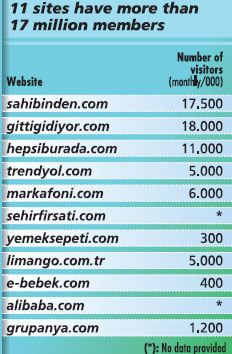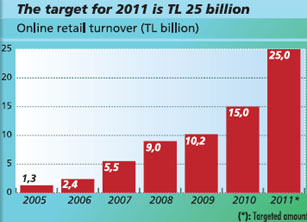
-
BIST 100
 13821,97%0,49En Düşük13821,97En Yüksek0
13821,97%0,49En Düşük13821,97En Yüksek0 -
DOLAR
 44,00%0,08Alış43,99Satış44,00En Yüksek44,00
44,00%0,08Alış43,99Satış44,00En Yüksek44,00 -
EURO
 51,26%0,07Alış51,24Satış51,26En Yüksek51,38
51,26%0,07Alış51,24Satış51,26En Yüksek51,38 -
STERLİN
 58,89%0,05Alış58,87Satış58,89En Yüksek59,06
58,89%0,05Alış58,87Satış58,89En Yüksek59,06 -
ALTIN
 7600%-0,65Alış7376,72Satış7600En Yüksek7650
7600%-0,65Alış7376,72Satış7600En Yüksek7650
-
BIST 100
 0%0,49En Düşük0En Yüksek0
0%0,49En Düşük0En Yüksek0 -
DOLAR
 43,99%0,08Alış43,99Satış44,00En Yüksek44,00
43,99%0,08Alış43,99Satış44,00En Yüksek44,00 -
EURO
 51,25%0,07Alış51,24Satış51,26En Yüksek51,38
51,25%0,07Alış51,24Satış51,26En Yüksek51,38 -
STERLİN
 58,88%0,05Alış58,87Satış58,89En Yüksek59,06
58,88%0,05Alış58,87Satış58,89En Yüksek59,06 -
ALTIN
 0%-0,65Alış7376,72Satış7600En Yüksek7650
0%-0,65Alış7376,72Satış7600En Yüksek7650
- Anasayfa
- Haberler
- Tüm Haberler
- Incredible growth
Incredible growth
They are developing special promotional campaigns for the Internet.


TODAY, yemeksepeti.com, which was established in 2001 with capital of $80,000, has a turnover of $110 million. It grew by 50 percent in 2009, which was the worst year of the crisis, before expanding by 40 percent last year. Sahibinden.com has grown by 2,394 percent since it was founded ten years ago and ranked third in the Deloitte list of the 500 fastest growing Turkish technology companies. The rate of growth of gittigidiyor.com is 953 percent. In 2010, E-bebek sold half as many products over the internet as it did in its shops. Hepsiburada.com has a turnover of TL 261 million, which means that it has succeeded in joining the ranks of the 500 largest companies in Turkey.
This is the situation of the domestic e-retailing giants. Now come the foreign investors. The largest e-retailing giants in the world, from Otto of Germany to Groupon of the USA, are engaged in a fierce competition on the Turkish market. Most are conducting research about entering a market which is growing by over 50 percent. All of them share the same goal of trying to make Turkey’s 32 million Internet users spend more money.
40-FOLD GROWTH IN 6 YEARS!
More than one billion people shop over the Internet worldwide. Turkey ranks 12th in the world and fourth in Europe with 32 million Internet users. Approximately 2 percent of retail sales are realised over the Internet.
The data from the Interbank Card Center (BKM) about the size of the sector are striking. According to BKM, the total e-commerce market grew in size from TL 262 million in 2003 to TL 10.2 billion in 2009. That represents 40-fold growth in six years. In the first ten months of 2010, market turnover reached TL 12.5 billion. The year-end figures for 2010 have yet to be announced. But total turnover is estimated to have reached TL 15 billion in the year as a whole. This represents growth of 50 percent when compared with 2009. The expectations for electronic retailing is that it will grow still further. Specifically, growth is expected to be over 60 percent this year and in 2012.

WHAT WILL HAPPEN IN THE FUTURE?
The real boom in the Turkish e-retailing market is expected to occur this year and next. The forecasts are even higher for 2013. The number of Internet users is expected to reach 44 million in 2013 and the number of those who shop online to total 22 million.
Markafoni founding partner Tolga Tatari says that the share of online purchases in total retailing will grow from less than 2 percent at present to 10-12 percent by 2013. The latest research by Deloitte confirms this prediction. Deloitte has stated that the share of e-commerce in total retailing in Turkey will reach 10 percent next year.
Yemeksepeti.com founding partner Melih Ödenmiş predicts that e-commerce will grow by 8 percent in Turkey in 2011.~
FOREIGN INVESTMENTS WILL INCREASE
There has long been a striking foreign interest in e-commerce in Turkey. Indeed, it is foreign rather than domestic funds which dominate the market. The first investment in this field was the purchase of Biletix by Ticketmaster in 2006. This was followed by eBay investing in gittigidiyor.com in 2007. In the following year, yemeksepeti.com received a foreign partner. Later Tiger bought trendyol.com and the German Holtzbrinck cember.net. The German Otto Group, which is the largest e-commerce company in the world with turnover of €15 billion, established Limango in Turkey.
Klaus Hommels, who is a partner in the Travas company, which is an investor in important companies such as Facebook, Skype and Spotify, invested in Markafoni. Groupon of the USA entered the market with the sehirfirsati.com brand. This interest is expected to continue and focus on companies which sell holidays and plane tickets online.

SECURITY INVESTMENTS WILL INCREASE
The most important obstacles facing the sector are continuing security problems and inadequate legislation. A significant number of potential customers do not shop over the Internet because they believe that the security measures are insufficient. “Credit card security is an important factor here,” says BKM General Manager Sertaç Özinal, adding that when security increases then the volume of e-commerce also rises. Özinal says that the 3D secure technology which has recently begun to be introduced is important in this respect. The 3D secure system provides electronic security because, even if someone else knows the card number, only the cardholder knows the password. The second major problem in the sector are the deficiencies in the legal and financial regulations. The problems are exacerbated by the fact that there is no clear law covering the information technology sector.
Türkiye ve dünya ekonomisine yön veren gelişmeleri yorulmadan takip edebilmek için her yeni güne haber bültenimiz “Sabah Kahvesi” ile başlamak ister misiniz?



